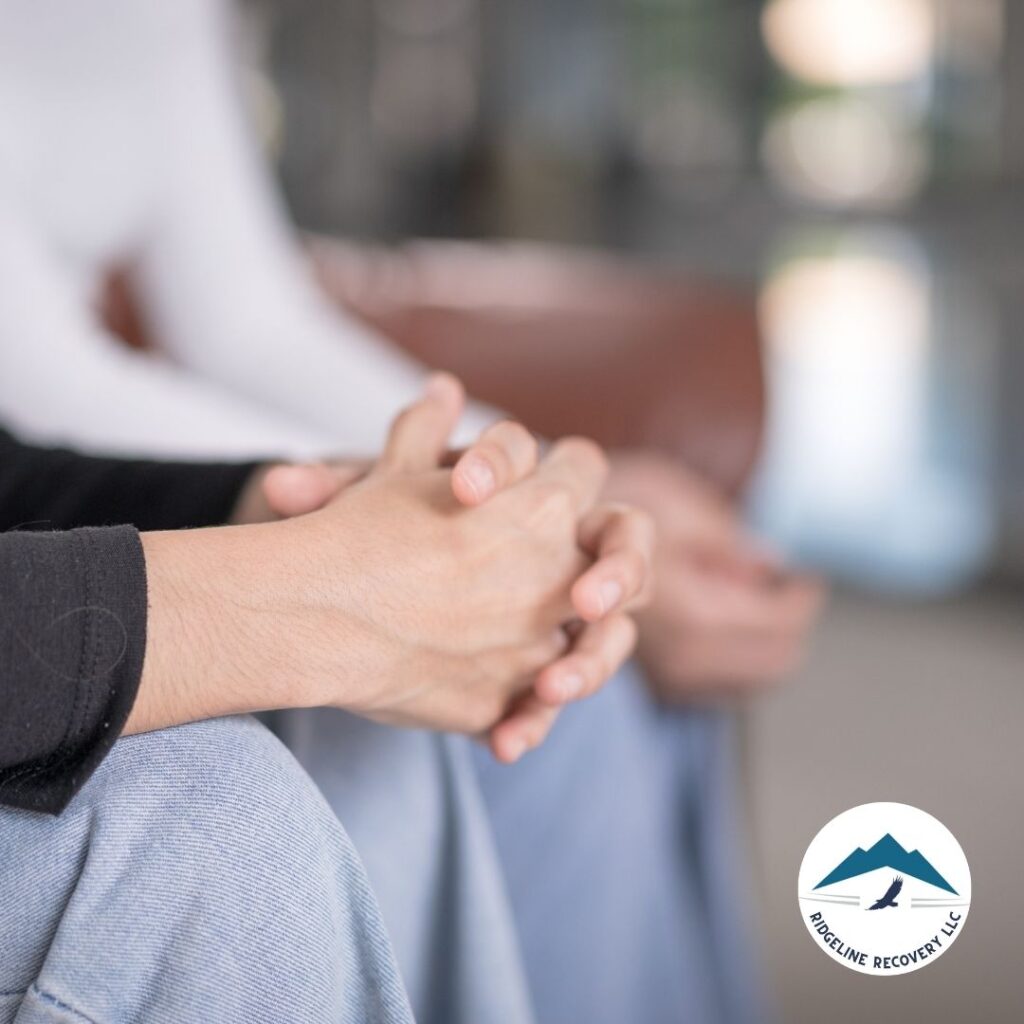Why Addiction Therapy?
Let’s get real: quitting alone is hard—near impossible for many.
But here’s the kicker: you don’t have to do it alone.
If you’re searching for addiction therapy, it means you’re ready to make a change. Whether you’re here because someone told you to, or you’re tired of the cycle, addiction therapy has a way of breaking through where sheer willpower can’t.
Addiction isn’t just a bad habit; it’s a disease that hijacks your brain. The “I’ll quit tomorrow” thinking is the disease talking, not you. And the best way to get your voice back? Addiction therapy.
What is Addiction Therapy, and Why Does it Work?
Addiction therapy isn’t about judgment; it’s about unpacking what drives your addiction. It’s a process, it’s messy, and yeah, it’s hard. But it works. Let’s break down why:
- Helps identify triggers: Most addictions are fueled by stress, trauma, or even boredom. Therapy gets to the root of why you keep coming back to the substance.
- Rewires your habits: You don’t just need to quit the substance; you need to replace it with something positive. Addiction therapy near me provides this new focus.
- Accountability: You’ve made excuses to yourself before, right? In therapy, accountability is on the table.
The Power of Local Support
Look, the stats are clear: people who access addiction recovery near me are way more likely to stick with it.
Why? It’s all about accessibility. When you have addiction therapy near me, it means there’s no excuse. You’re not dealing with a three-hour drive to get help; you can pop over whenever you need.
When you’re part of a local network, like Ridgeline Recovery in Columbus, you’re building a support system close to home. It’s your own community rallying behind you, rooting for your success.
Here’s what local support can look like:
- Immediate access to therapy: Whether it’s mental health services near me or Vivitrol clinics near me, it’s all accessible.
- Relatable counselors: A local mental health therapist near me understands the unique challenges of your area.
- Long-term recovery networks: Once you’re done with intensive addiction therapy, you’ll still have people nearby who get it.
What Real Addiction Therapy Looks Like
It’s one thing to say you want to quit, but it’s another to know how. That’s where addiction therapy services come in, offering a blueprint to start your journey.
Here’s a breakdown of the different types of addiction therapy you might encounter in Columbus or wherever you’re looking for addiction therapy near me:
- Cognitive Behavioral Therapy (CBT): The bread and butter of addiction therapy services. It teaches you how to manage cravings and handle triggers. Imagine yourself being able to walk away from a stressful situation without needing that “escape.”
- Medication-Assisted Treatment (MAT): Heard of Vivitrol clinics near me? This isn’t just a buzzword. Clinics like Ridgeline Recovery use medications like Vivitrol to make it easier to fight cravings. It’s like taking a shield into battle instead of going in bare-handed.
- Faith-Based Programs: For those who see faith as a pillar in their life, Christian drug counseling and faith-based rehab centers near me offer a way to lean on spirituality for strength. Programs like faith-based rehab programs combine structured treatment with a spiritual approach that resonates for many.
- Group Therapy: At Ridgeline Recovery, we believe in community support. Group sessions provide camaraderie—you’re around people who know what it’s like to be in the trenches of addiction.
The Difference Between “Getting Sober” and True Recovery
Sobriety is just one part of the puzzle. Recovery? That’s the big picture.
Think of sobriety as surviving. But recovery? It’s thriving. Real addiction treatment near me isn’t just about hitting pause on substance use. It’s about reclaiming your life.
True recovery means:
- Building new habits: Therapy doesn’t just take away; it gives back. You’ll build skills that help you thrive without relying on substances.
- A lifestyle shift: This isn’t just about one day at a time. It’s about creating a life you don’t feel the need to escape from.
How to Start: Find the Right Help Nearby
So, you’re ready to take the leap. You know you need help, but where do you start?
Finding the right addiction treatment near me can feel overwhelming.
Here’s the deal: addiction recovery Columbus isn’t just a search term; it’s a lifeline. Here are the steps to help you navigate this journey:
1. Start with a Search
When you’re Googling, be specific. Look for terms like “addiction therapy near me” or “addiction recovery Columbus.”
A few pointers:
- Use your location in the search. For example, “addiction therapy Columbus Ohio” will yield local options.
- Don’t just stick to Google. Check out local forums or Facebook groups. Sometimes, real experiences lead to real connections.
2. Evaluate Your Options
Once you have a list of potential treatment centers, here’s how to evaluate them:
- Read Reviews: Platforms like Google and Yelp can provide insight into others’ experiences. Look for mentions of addiction therapy services and the effectiveness of their programs.
- Check Credentials: Ensure that the therapists and counselors are licensed. You want professionals who specialize in addiction therapy.
3. Visit Facilities
If you can, schedule visits to your top choices.
In-person impressions can reveal a lot:
- Atmosphere: Is it welcoming? Does it feel safe?
- Staff Interaction: How do they treat you? Is there empathy and understanding?
4. Ask About Programs
Not all programs are created equal. Here’s what to inquire about:
- Types of Therapy Offered: Are they using evidence-based methods like CBT or motivational interviewing?
- Aftercare Plans: What happens after you complete the program? A solid aftercare plan is crucial for long-term success.
FAQs About Addiction Therapy
What is addiction therapy?
Addiction therapy is a structured form of treatment designed to help individuals overcome substance use disorders. It includes various methods such as individual therapy, group therapy, and medication-assisted treatment.
How does addiction therapy work?
Addiction therapy works by addressing the psychological aspects of addiction. Therapists help individuals identify triggers, develop coping strategies, and rebuild their lives in a healthy, substance-free way.
How do I know if I need addiction therapy?
If you’re struggling to control your substance use, experiencing negative consequences in your life due to addiction, or finding it hard to quit despite wanting to, it’s time to seek addiction therapy.
Are there addiction therapy services specifically for Christians?
Absolutely! Many facilities offer Christian addiction therapy options. They incorporate faith-based principles to support individuals on their recovery journey.
Can I find addiction therapy near me that accepts insurance?
Most treatment centers do accept various insurance plans. Always check with the facility and your insurance provider to understand your coverage.
What if I can’t afford addiction therapy?
Many facilities offer sliding scale fees based on income, and there are free or low-cost options available, especially for community programs. Search for addiction recovery near me that provides financial assistance.

The Long-Term Benefits of Addiction Therapy
The road to recovery doesn’t stop when the therapy sessions end. The benefits of engaging in addiction therapy can extend far beyond just quitting substances.
1. Improved Mental Health
Many people don’t realize the profound impact that addiction has on mental health. Ongoing addiction treatment Columbus can help:
- Alleviate symptoms of anxiety and depression.
- Teach coping mechanisms to handle life’s stressors without turning to substances.
2. Building Healthy Relationships
Addiction often isolates you from loved ones. Through therapy, you can learn to rebuild these connections.
- Family Therapy: Engaging family members in the process can foster healing and communication.
- Support Networks: Finding groups in your area focused on addiction recovery can create lasting friendships based on shared experiences.
3. Enhanced Life Skills
Addiction therapy doesn’t just focus on the negatives; it equips you with essential life skills.
- Communication Skills: Being able to express your feelings clearly is vital.
- Stress Management Techniques: Mindfulness and relaxation strategies can keep you grounded in difficult times.
Success Stories: Real People, Real Change
Nothing inspires hope quite like a good success story. Let’s dive into a couple of examples from individuals who have walked the path of addiction therapy.
Sarah’s Journey to Freedom
Sarah was in her late twenties when she realized her drinking had spiraled out of control. She searched for addiction recovery near me and found Ridgeline Recovery.
Through addiction therapy services, she discovered:
- How to identify triggers at work and home.
- New coping mechanisms that didn’t involve alcohol.
Now, Sarah is thriving in her job and even mentors others in recovery. Her story illustrates that the right addiction treatment Columbus can change lives.
Mike’s Road to Recovery
Mike struggled with opioid addiction for over five years. After several failed attempts to quit on his own, he sought addiction therapy.
He learned about:
- The importance of accountability through group therapy.
- The role of medication-assisted treatment with Vivitrol, which made a significant difference in his recovery.
Today, Mike works as a recovery coach, helping others find their way, proving that recovery is not just possible; it’s attainable.
Integrating Mental Health Services
Addiction doesn’t exist in a vacuum. Often, mental health plays a crucial role in the journey to recovery. That’s where mental health services come into play.
Why Mental Health Matters
Mental health issues often co-occur with addiction. Here’s how integrating these services can bolster your recovery:
- Dual Diagnosis Treatment: Many facilities provide specialized care for individuals facing both addiction and mental health disorders.
- Holistic Approaches: Services like mindfulness and stress management help create a balanced recovery plan.
The Road Ahead: Continuing Your Journey
Recovery is a marathon, not a sprint. After completing addiction therapy, the real work begins.
Ongoing Support and Resources
You’ve made it this far, but staying clean is a lifelong commitment. Here’s how to keep the momentum:
- Support Groups: Look for local addiction recovery columbus meetings. These communities can offer ongoing support and accountability.
- Continued Therapy: Many individuals find value in ongoing sessions, whether it’s weekly or bi-monthly.
- Self-Care Practices: Incorporate activities that promote wellness, such as exercise, hobbies, and social events.
Keep Your Goals in Sight
Setting goals helps maintain focus. Whether it’s personal, professional, or health-related, having a roadmap can keep you on track. Celebrate small wins and learn from setbacks.
Understanding Addiction Therapy: What Is It?
What Does Addiction Therapy Entail?
Addiction therapy refers to a range of treatments designed to help individuals overcome substance use disorders. It encompasses various therapeutic approaches, including:
- Individual Therapy: One-on-one sessions with a trained professional.
- Group Therapy: Sharing experiences and strategies with peers.
- Family Therapy: Involving family members in the healing process.
- Medication-Assisted Treatment (MAT): Utilizing medications to support recovery.
The goal is to equip you with the tools to manage cravings, cope with triggers, and rebuild your life.
Why Is Addiction Therapy Important?
Addiction therapy addresses the underlying issues that contribute to substance use. It provides a safe space to:
- Explore emotions and triggers.
- Learn healthier coping mechanisms.
- Develop a support network.
The insights gained from therapy can lead to profound changes in your life, paving the way for long-term recovery.
How to Find the Right Addiction Therapy Near Me
Start with a Clear Idea of What You Need
Before you start searching for addiction therapy near me, take a moment to reflect on what you hope to achieve. Do you need:
- Immediate detox support?
- Ongoing therapy?
- A specific focus on co-occurring mental health issues?
Understanding your needs will help you choose the right facility.
Utilize Online Resources
In today’s digital age, finding help is easier than ever. Here’s how to leverage online tools:
- Search Engines: Use terms like “addiction therapy near me” or “addiction treatment near me” to find local options.
- Online Directories: Websites like Psychology Today allow you to filter therapists by specialization, location, and insurance.
- Social Media Groups: Many support groups exist on platforms like Facebook. Engaging with these communities can lead you to valuable resources.
Visit Local Treatment Centers
Once you’ve narrowed down your options, it’s time to visit. Here’s what to look for during your visits:
- Cleanliness and Safety: Ensure the facility feels welcoming and safe.
- Staff Interaction: Observe how staff interact with clients. Empathy and respect are key indicators of a supportive environment.
- Program Variety: Inquire about the types of addiction therapy services offered. A comprehensive approach is often most effective.
The Types of Addiction Therapy Services Available
Understanding the various addiction therapy services available can help you make informed decisions about your treatment plan.
1. Cognitive Behavioral Therapy (CBT)
CBT is one of the most widely used approaches in addiction therapy. It focuses on identifying and changing negative thought patterns that contribute to substance use. Through CBT, you learn to:
- Recognize triggers.
- Develop coping strategies.
- Replace harmful behaviors with healthier ones.
2. Dialectical Behavior Therapy (DBT)
DBT is particularly effective for those struggling with emotional regulation. It combines cognitive-behavioral techniques with mindfulness practices, teaching skills like:
- Distress tolerance.
- Emotional regulation.
- Interpersonal effectiveness.
3. Motivational Interviewing (MI)
MI is a client-centered approach that enhances motivation to change. It’s particularly useful in the early stages of recovery when individuals may be ambivalent about making changes.
4. Group Therapy
Group therapy provides a platform for shared experiences. You’ll find community and support among peers who understand your struggles. This can foster accountability and reduce feelings of isolation.
5. Family Therapy
Addiction affects the entire family system. Family therapy involves loved ones in the recovery process, addressing relational dynamics and building healthier communication patterns.
6. Holistic Therapies
Some treatment centers incorporate holistic approaches, such as yoga, meditation, and art therapy. These methods promote overall well-being and can complement traditional therapies effectively.
Exploring Medication-Assisted Treatment (MAT)
What Is MAT?
Medication-Assisted Treatment (MAT) combines behavioral therapy and medications to treat substance use disorders, particularly for opioids and alcohol.
How Does It Work?
MAT helps reduce cravings and withdrawal symptoms, making it easier to engage in addiction therapy. Common medications include:
- Buprenorphine: Often used for opioid addiction, it can help reduce cravings and withdrawal symptoms.
- Naltrexone: This medication blocks the effects of opioids and reduces the urge to drink.
- Disulfiram: Used for alcohol dependency, it causes unpleasant reactions when alcohol is consumed.
Finding Vivitrol Clinics Near Me
If you’re considering MAT, search for Vivitrol clinics near me. These facilities specialize in administering Vivitrol, which can be a crucial part of your recovery journey.
The Role of Aftercare in Addiction Recovery
Completing a treatment program is just the beginning. Aftercare plays a critical role in maintaining your progress.
Why Is Aftercare Important?
Aftercare supports your transition from structured treatment back into everyday life. It helps:
- Prevent relapse.
- Reinforce skills learned during therapy.
- Maintain accountability.
Types of Aftercare Programs
- Sober Living Homes: These provide a supportive environment for individuals in recovery.
- Outpatient Programs: Continuing therapy on an outpatient basis allows for ongoing support without the need for residential treatment.
- Support Groups: Regular attendance at groups like Alcoholics Anonymous (AA) or Narcotics Anonymous (NA) can foster community and connection.
Frequently Asked Questions About Addiction Therapy
How Long Does Addiction Therapy Last?
The duration of addiction therapy varies depending on individual needs. Some may benefit from a few months, while others may require ongoing support for years.
Can Addiction Therapy Help with Co-Occurring Disorders?
Absolutely! Many facilities offer specialized programs for individuals dealing with both addiction and mental health issues. It’s essential to find a center that addresses both aspects of your health.
Is Addiction Therapy Effective?
Research shows that addiction therapy can be highly effective. It significantly increases the chances of successful recovery, especially when combined with a comprehensive treatment plan.
What Should I Expect During Therapy?
During therapy, you’ll engage in discussions about your feelings, triggers, and experiences. You’ll also learn coping skills and strategies to navigate life without substances.
How Do I Choose the Right Therapist?
Look for someone who specializes in addiction therapy and has experience with your specific issues. Personal compatibility is also vital; you should feel comfortable and safe discussing sensitive topics.

Strategies for Maintaining Sobriety Post-Therapy
Once you’ve completed your addiction therapy, maintaining sobriety becomes your primary focus. Here are some strategies to help you stay on track:
1. Establish a Support Network
Surround yourself with people who support your recovery. This can include family, friends, and fellow peers from your therapy group. Engaging in local addiction recovery Columbus meetings can also provide ongoing encouragement.
2. Create a Relapse Prevention Plan
Having a plan in place can help you navigate challenging situations. Your plan should include:
- Identifying triggers.
- Developing coping strategies.
- Emergency contacts for support.
3. Stay Engaged in Aftercare
Don’t underestimate the power of continued support. Stay connected with your therapist and attend aftercare programs. These resources are invaluable in reinforcing what you’ve learned.
4. Focus on Healthy Habits
Adopt a lifestyle that promotes well-being:
- Exercise Regularly: Physical activity boosts mood and reduces stress.
- Eat a Balanced Diet: Nourishing your body can improve mental health.
- Practice Mindfulness: Meditation and mindfulness practices can enhance your resilience against stress.
5. Continue Learning
Educate yourself about addiction and recovery. Understanding your journey can empower you to stay committed to sobriety.
Success Stories: Real Lives Transformed Through Addiction Therapy
Let’s explore a few more success stories of individuals who transformed their lives through addiction therapy.
John’s Recovery Journey
John found himself at rock bottom after years of alcohol abuse. He sought help from a local addiction treatment center Columbus, where he engaged in addiction therapy.
Through hard work and dedication, John learned to cope with his triggers. He now leads a support group, sharing his story to inspire others facing similar challenges.
Emily’s Path to Healing
Emily struggled with opioid addiction for nearly a decade. After starting addiction therapy, she discovered her passion for art.
Now, she uses her artistic talents to help others express their emotions and experiences. Emily’s journey showcases how recovery can lead to newfound purpose.
Conclusion: Embrace the Journey to Recovery with Addiction Therapy
If you or a loved one is facing the struggles of addiction, remember this: addiction therapy is a vital tool for recovery. With the right support and resources, you can reclaim your life.
Whether you’re searching for addiction therapy near me or exploring options like MAT and group therapy, know that help is available. Take that first step toward healing and a brighter future.
Your journey begins today. Don’t wait—reach out for help and embrace the path to recovery.
Take the First Step Towards Change
Addiction therapy is more than just a treatment—it’s a gateway to a new life.
If you’re ready to embrace recovery, start looking for addiction therapy near me today.
Reach out to local centers, ask questions, and get involved in your recovery journey.
Remember, you don’t have to face this battle alone. Help is out there, and it begins with you making that call.
Call Us Now!
If you or a loved one is struggling with heroin or alcohol dependency, reach out to Ridgeline Recovery Center in Columbus, Ohio, today. At Ridgeline Recovery, we offer a path to hope and healing. Our comprehensive Addiction Recovery services include Addiction Therapy, Addiction Treatment, Vivitrol Clinic and specialized Mental Health Services designed to support your journey to recovery.
We provide Aftercare Programs and Peer Support to ensure you have ongoing assistance after treatment. Our dedicated team offers Case Management and Child Services for those needing extra support. For individuals who prefer a faith-based approach, we offer Faith-Based Recovery options.
Our programs feature Group and Individual Counseling, along with Medication-Assisted Treatment (MAT) to address your unique needs. We also have an Intensive Outpatient Program (IOP) and a Partial Hospitalization Program (PHP) for more structured care.
Our team includes Registered Nurse Services, Psychiatric Services, and Therapeutic Behavioral Services (TBS) to provide comprehensive support throughout your recovery process. We work with various Insurance Coverage plans to help you access the care you need.
Don’t wait—contact us now to start your journey toward a brighter future with Ridgeline Recovery.
For more stories and information Contact Us, visit our Blog page and Stories & Highlights.







